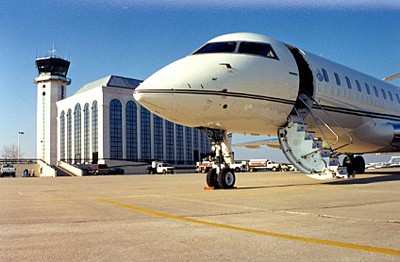Mon, Aug 28, 2023
Funding Aims to Enhance, Standardize Airport Layouts to Eliminate Near-Accidents
The FAA announced the next batch of recipients to gain funding for improved taxiways, lighting systems, and airport accouterments in an effort to reduce runway incursions after a rash of high-profile incidents.

The money will come from the FAA’s Airport Improvement Program and the recent infrastructure law. Winners of the funding include Ted Stevens Anchorage International, in Alaska; Willow Run Airport of Detroit, Michigan; Boston Logan International, in Massachusetts; Naples International in Florida; Jackson Hole Airport, in Wyoming, Richmond International, in Virginia;, Eugene F Kranz Toledo Express, in Ohio, and Ronald Reagan Washington National, in Washington DC.
Anchorage will get almost $40 million to redesign the geometry of its taxiways and runway intersections, as well as improve lighting systems for low visibility conditions. Additional improvements will lengthen and widen some taxiways in order to meet the needs of larger modern aircraft using them. Detroit will see $12.8 million for a new taxiway, obviating back taxi needs for its main runway. Boston will get almost $45 million to simplify their layout, too, following the airport’s runway incursion mitigation plan. The work will also improve and overhaul existing taxiways and runways to reduce FOD and improve runway durability. Naples will get a more modest $3.5 million to revise Taxiway A’s intersection with B to fall in line with standardized intersection standards, with 3,000 feet of service roads to be reconstructed for better vehicle flow. Jackson Hole will get $2.6 million for a new taxiway in order to eliminate back-taxiing, with the rest going to rehab Taxiway A for structural
integrity and FOD reduction. Richmond will see $5.6 million to shift a taxiway North in order to meet modern FAA design standards.Toledo will get $4.6 million in order to shift a taxiway and rehabilitate a whole bunch of its own, not just to eliminate FOD risks but to reduce the amount of standing water building up on airport surfaces from rain and snowmelt. Finally, Washington DC will get $5 million to build a new connecting taxiway between Runways 1/19 and 15/33 in order to expedite traffic, while reconfiguring a handful of runways and holding bays to meet modern standards.
More News
From 2021: The Inside Skinny On What Being An ANN Oshkosh Stringer Is All About By ANN Senior Stringer Extraordinare, Gene Yarbrough The annual gathering at Oshkosh is a right of p>[...]
Video Showed That During The Takeoff, The Nose Baggage Door Was Open On May 10, 2025, about 0935 eastern daylight time, a Piper PA-32RT-300, N30689, was destroyed when it was invol>[...]
Get The Latest in Aviation News NOW on Instagram Are you on Instagram yet? It's been around for a few years, quietly picking up traction mostly thanks to everybody's new obsession >[...]
"I think what is key, we have offered a bonus to air traffic controllers who are eligible to retire. We are going to pay them a 20% bonus on their salary to stay longer. Don't reti>[...]
Aero Linx: Pilot Briefing The gathering, translation, interpretation, and summarization of weather and aeronautical information into a form usable by the pilot or flight supervisor>[...]
 Oshkosh Memories: An Aero-News Stringer Perspective
Oshkosh Memories: An Aero-News Stringer Perspective NTSB Prelim: Piper PA32RT
NTSB Prelim: Piper PA32RT ANN FAQ: Follow Us On Instagram!
ANN FAQ: Follow Us On Instagram! Aero-News: Quote of the Day (05.28.25)
Aero-News: Quote of the Day (05.28.25) ANN's Daily Aero-Term (05.28.25): Pilot Briefing
ANN's Daily Aero-Term (05.28.25): Pilot Briefing



